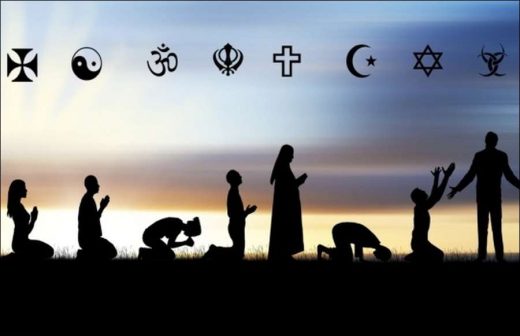Atheism or Agnosticism? There have been many philosophers who have focused on the philosophy of religion since the emergence of systematic philosophical thinking. While the issue of the existence or non-existence of God or gods preoccupies people’s minds today; Yesterday it caused a lot of controversy.
Even if humanity questioned it, especially in the Middle Ages; This issue of existence and non-existence, which cannot be expressed, is being discussed fiercely these days, especially in the heart of systematic thought of Western origin, and many concepts such as religion, god, and prophet are being questioned fiercely. Our article “Atheism or Agnosticism?” begins by including all these debates and arguments.
The issue of the existence or non-existence of God is one of the most popular topics that has always taken its place in the history of humanity’s thought. The magnificence of the world we are born into and the terrible events that humans are exposed to cause us to discuss the issue of whether there is a being greater than us.
These discussions, which we first encountered in Ancient Greece – although there were discussions before, they were not recorded in documents or the works were obscured – are observed in Epicurus, the intellectual of Hedonist thought, and in the arguments of philosophers such as Anaximander, Anaxogoras and Democritus, who were among the leading Greek materialists. According to written texts; These names, which I can describe as the first atheists, thought a lot about the issue of the existence or non-existence of God and tried to systematize their ideas.
Although he cannot be described as the first atheist of Ancient Greece that meets modern definitions, Socrates, who was convicted of “pushing young people to think about the existence of gods”, is also considered one of the first Agnostics of this age. The concept of God, which has been discussed since very early times, attracts our attention as an area of debate that humanity does not ignore when determining its main direction.
Let us not forget to mention this, dear reader: Humanity’s debate about whether God exists or not does not proceed by relying on a chronological balance. While in older ages, a freer discussion forum existed compared to the Antiquity and the Middle Ages; The increasing rigidity of dogmatic thought in both eras mentioned above means the loss of the environment of freedom for philosophy and philosophy of religion. Theism – God-based considerations – have declared their dominance in the world of thought; The societies of that period, especially the Western society, suffered, in layman’s terms, great suffering under intense pressure.
As is known, after the Renaissance and Reformation, Western civilization, which bid farewell to the darkness of the Middle Ages, not only broke the domination of the church; Instead, it causes relatively freer sects – Protestantism, Calvinism and Anglicanism – to spread among the people. The environment of free thought accelerated in the Age of Enlightenment; After the French Revolution, it increased its effectiveness in almost all of Continental Europe.
Now the debate about the existence or non-existence of God; It is brought up for discussion again after hundreds of years in the texts of notable philosophers such as David Hume, Denis Diderot, Karl Marx, and Thomas Henry Huxley. Atheism and Agnosticism begin to be spoken of as concepts that are no longer avoided to be spoken out loud, especially in the assemblies of the intellectual class.
Views: 296



